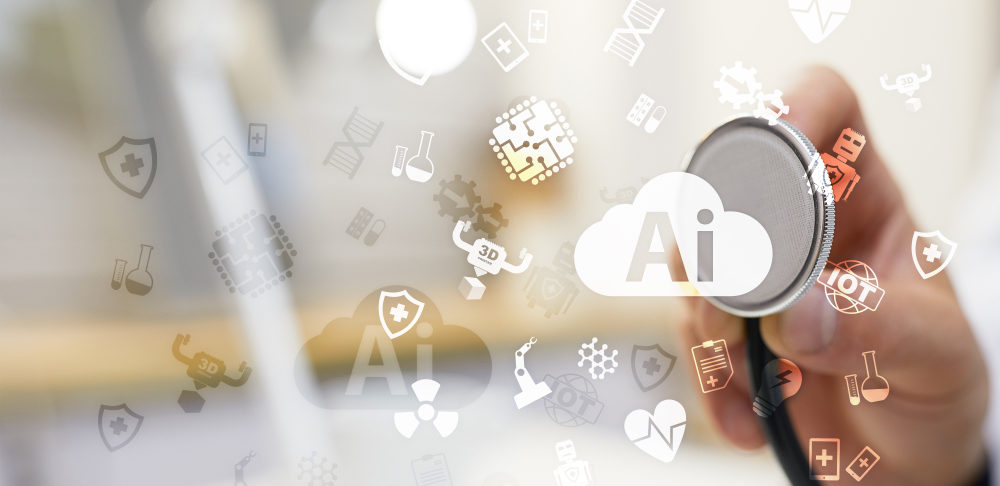
Artificial intelligence (AI) used to be something only seen in futuristic movies. But the future is here, and one of the most exciting developments has been the use of AI in health care. This revolutionary technology will undoubtedly play a huge role in advancing medical science and saving lives – but the drawbacks could be just as significant.
A new study by the University of Washington discovered that while AI has the potential to assist with disease detection, its reliance on “shortcut learning” could lead to dangerous or fatal medical diagnostic errors.
Researchers evaluated several new AI models and their ability to detect COVID-19 simply by examining chest x-rays. But AI does not use the traditional trial and error method used by pathologists for diagnoses. Instead, it tries to answer quickly by focusing more on random factors – like what brand the MRI machine is or what time a blood sample is taken – that often give it the completely wrong idea about the patient and his condition.
“A physician would generally expect a finding of COVID-19 from an x-ray to be based on specific patterns in the image that reflect disease processes,” said the study’s co-author, doctoral student Alex DeGrave. “But rather than relying on those patterns, a system using shortcut learning might, for example, judge that someone is elderly and thus infer that they are more likely to have the disease because it is more common in older patients.”
It is not difficult to imagine endless scenarios in which such a margin of error could result in catastrophe for patients.
Another paper published in a 2020 issue of Future Healthcare Journal came to an opposite conclusion. Rather than being an unfamiliar approach rife with risks, researchers predicted that AI would be successfully applied in every aspect of health care, from diagnosis to patient engagement to administration. The paper referenced a study in the Journal of the National Cancer Institute demonstrating that the AI was equally skilled (95 percent confident) at correctly detecting breast cancer as a human radiologist.
The paper’s authors cited Google research showing that an artificial neural network can be trained to find evidence of lung cancer even faster than its biological neural counterparts. An artificial neural network is a computing system based loosely on the same neural networks present in live animals. They also pointed out that AI can continually teach itself and could create algorithms that would speed up the right diagnosis.
However, the disparity in opinions between whether AI will be good or harmful for health care shows that more study is needed.
Pros and Cons to Medical Artificial Intelligence
There are several ways AI might be applied in health care going forward. One interesting possibility is the development of a virtual nurse, a voice-based program similar to Amazon’s Alexa devices that will be available for patients to interact within their hospital room. Other ways proponents suggest AI could positively impact treatment include:
- Creating a more specialized treatment plan
- Speed up the production of prescription drugs
- Reduce the need for hospitalization
- Develop an aging clock that gathers data about a patient’s health, lifestyle, and environment to predict how long they might live
Machine learning is already being used for improving clinic workflow, reducing the cost of research, and helping patients come up with a customized fitness program via apps like Google Health. But there is a lack of research on the efficacy of more than 300,000 comparable apps in use today.
Like any technology, AI has just as much potential for harm as for good. Some experts predict that once the excitement and novelty of AI-assisted clinical procedures wear off, problems will begin to pop up. For example, few of the 130+ AI devices the U.S. Food and Drug Administration (FDA) has approved over the past couple of years have been tested in clinical trials. As a result, AI could miss a tumor during a CT scan, recommend the wrong medication, give a hospital bed to a patient who needs it less than another and produce many other errors. And if there is a fundamental flaw in the programming, it could misdiagnose thousands of patients instead of just one. AI software even has a history of discriminating against people of color.
In recent years, the FDA has come under a lot of fire for approving medical devices that turned out to be dangerous. A fast-track process called the “510(k) pathway” allows manufacturers to skip clinical testing before selling devices with a moderate level of risk. The FDA is using this same method to rapidly approve AI devices, a disturbing trust in unfamiliar technology that is sure to make mistakes.
Could AI Lead to Medical Malpractice?
Above all, physicians are concerned that trusting an algorithm to diagnose patients will increase misdiagnoses, which is one of the most direct paths to medical malpractice. Misdiagnosis or failure to diagnose can be a simple mistake that is easily corrected or serious negligence. The worst cases can lead to permanent injury or even death for patients.
To qualify as malpractice, diagnostic errors must be attributed to gross negligence by the physician that another peer-level physician would not have committed. Plaintiffs must also show evidence of an established relationship with the provider. Many states, including New Jersey, require a signed affidavit from the peer physician and proof of emotional, mental or physical harm as a direct result of the error.
AI isn’t going anywhere, so patients must continue to be advocates when it comes to their health. It’s always a good idea to seek a second opinion, especially when the first one came from any kind of artificial intelligence. If you are uncomfortable with relying on machine learning, you must speak up. The addition of AI to health care has enormous potential to produce increased malpractice.
Whether you are up against one provider or an entire hospital and its billion-dollar insurance company, you are already at a disadvantage in any malpractice case. Providers you trust to care for you should be held responsible when they neglect their duties. Let the experienced New Jersey medical malpractice attorneys at D’Arcy Johnson Day help you determine possible legal options if you believe you are a victim of medical malpractice. Call us at 866-327-2952 or contact us online for a free legal consultation.

From sexual abuse matters to personal injury and workers compensation, Jessica brings a wealth of experience to her practice at D’Arcy Johnson Day. Her fluency in both English and Spanish enables her to help so many members of the community, as she focuses on accident and personal injury cases, work injuries, medical malpractice, immigration, criminal law, and municipal court proceedings among other areas of practice.














Comments for this article are closed.